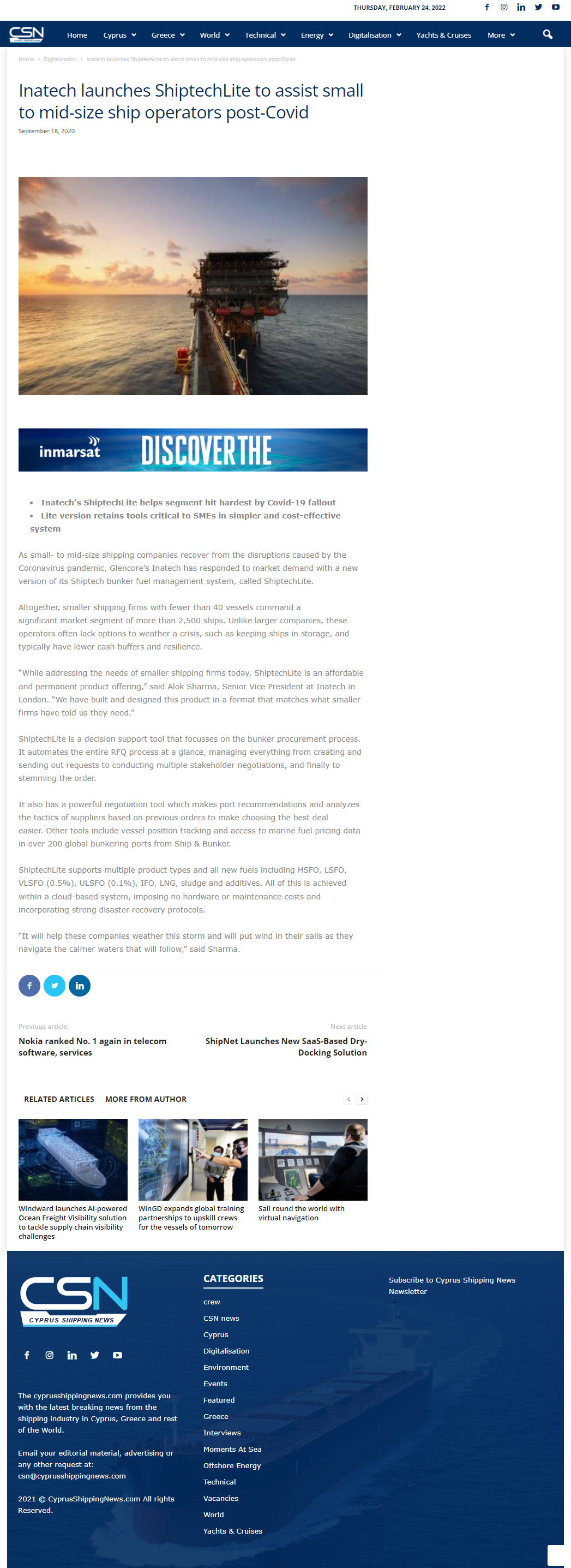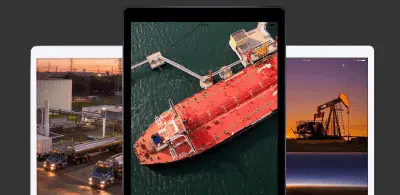
INATECH LAUNCHES SHIPTECHLITE TO ASSIST SMALL TO MID-SIZE SHIP OPERATORS POST-COVID
- Inatech’s ShiptechLite helps segment hit hardest by Covid-19 fallout
- Lite version retains tools critical to SMEs in simpler and cost-effective system
As small- to mid-size shipping companies recover from the disruptions caused by the Coronavirus pandemic, Glencore’s Inatech has responded to market demand with a new version of its Shiptech bunker fuel management system, called ShiptechLite.
Altogether, smaller shipping firms with fewer than 40 vessels command a significant market segment of more than 2,500 ships. Unlike larger companies, these operators often lack options to weather a crisis, such as keeping ships in storage, and typically have lower cash buffers and resilience.
“While addressing the needs of smaller shipping firms today, ShiptechLite is an affordable and permanent product offering,” said Alok Sharma, Senior Vice President at Inatech in London. “We have built and designed this product in a format that matches what smaller firms have told us they need.”
ShiptechLite is a decision support tool that focusses on the bunker procurement process. It automates the entire RFQ process at a glance, managing everything from creating and sending out requests to conducting multiple stakeholder negotiations, and finally to stemming the order.
It also has a powerful negotiation tool which makes port recommendations and analyzes the tactics of suppliers based on previous orders to make choosing the best deal easier. Other tools include vessel position tracking and access to marine fuel pricing data in over 200 global bunkering ports from Ship & Bunker.
ShiptechLite supports multiple product types and all new fuels including HSFO, LSFO, VLSFO (0.5%), ULSFO (0.1%), IFO, LNG, sludge and additives. All of this is achieved within a cloud-based system, imposing no hardware or maintenance costs and incorporating strong disaster recovery protocols.
“It will help these companies weather this storm and will put wind in their sails as they navigate the calmer waters that will follow,” said Sharma.






